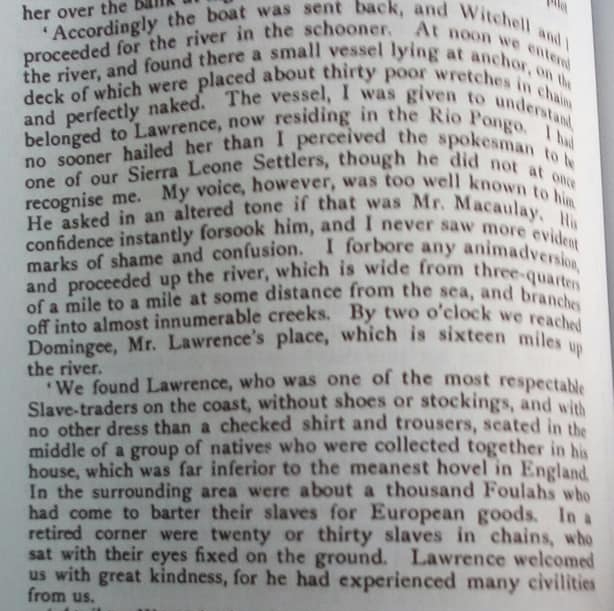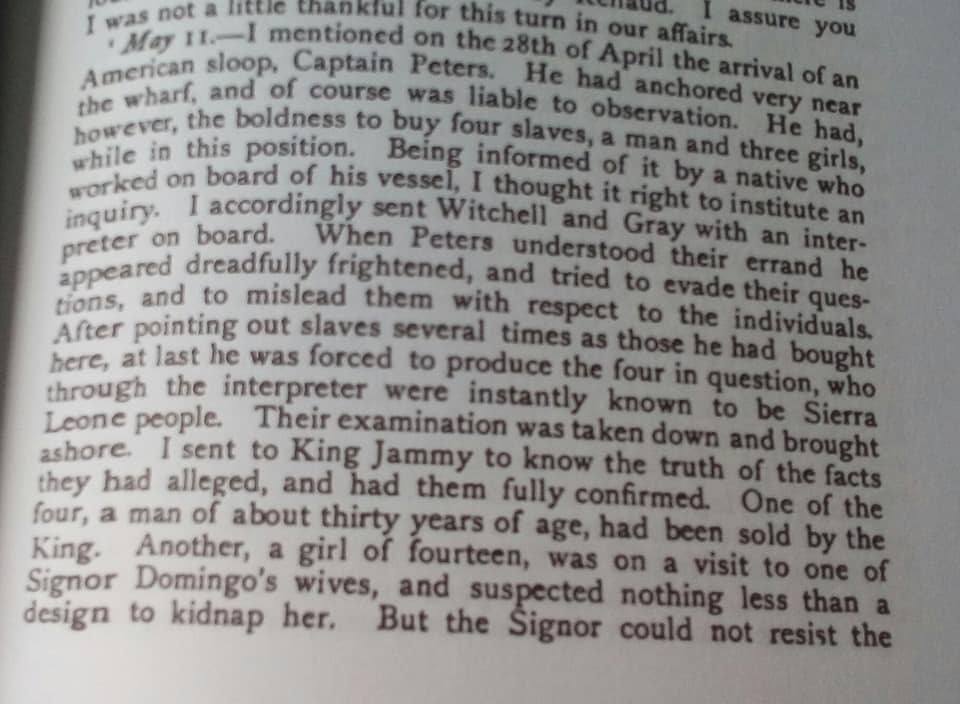A few years ago I wrote wondering if anybody would consider doing a biography of the prominent anti-slavery campaigner and father of Lord Macaulay. I discovered that in the late 19th century members of the Macaulay family published a volume of his Life & Letters and was all too eager to get myself a copy of it.
The most interesting part of the book was the journal he kept while in charge of a colony for escaped and freed slaves near Sierra Leone harbour which was a major slave trading point back. He reports that when the European slave ships arrived, the harbour was crowded by local tribes people (mainly Fulanis) bringing other black people (often naked and in chains) to trade for European goods. At one point he boards a ship and rescues a family of four only to be told by a local king that they have to go back on the ship as he had sold them himself that morning. The tensions rose even further when Macaulay stood his ground and it was threatened that unless he returned the slaves to the ships, the entire colony would be destroyed and him with it. He also reports that he suspects members of his colony to be involved with the traders and discovers that men would often pawn their wives and families to the traders, take the money and then vanish.
This raised some very interesting questions in my mind about the nature of this trade especially upon also discovering that one African kingdom in particular (Dahomey) was pretty much keeping the whole trade supplied globally pretty much single handed. (Dahomey opposed all British attempts to end the trade partly, it seems, because it provided their only export market at that time. As soon as they discovered Palm Oil the trade desisted with them). I began to see a very definite CLASS pattern raising itself here. Just as the wealthy in the U.K were exploiting and starving off the surplus peasants through Malthusian economics, just as the wealthy in Russia held the Muzhik in captivity to work their fields, and like the Dalits were treated by the ruling Brahman Castes in India, it seemed to be another example of the wealthy selling off or abusing their own in pursuit of monetary gain.
I was also intrigued to discover that Thomas Sowell in the U.S. had gone into the issue in some detail and provided more evidence that this was a class and not a race based issue. I disagree profoundly with Sowell on quite a few issues but I think his work in this field is superb. I believe it was he who pointed out that the very first freed afro-american slave in the U.S Anthony Johnson went on to use slaves on his tobacco plantations and even went to court to ensure that one of his workers John Casor remained a slave for life.
I was, however, right to assert that Zachary Macaulay deserved a biography of his own, he was the radical template his son Thomas Babington took after and applied in various other contexts and his own life was fascinating in the extreme.



